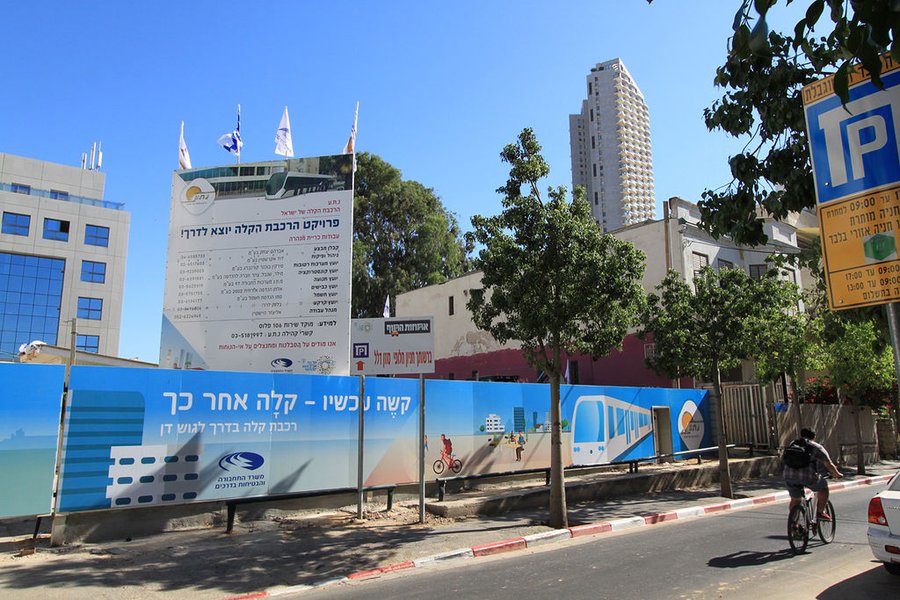"It's moving forward," said Minister of Transport Yisrael Katz at the MetroTLV conference held by NTA Metropolitan Mass Transit System, the Ministry of Transport, and the Ministry of Finance. He was referring to progress in railway construction.
"There is criticism, and that's legitimate, but the fact is that the first light rail line will begin operating in October 2021, as promised. 22 kilometers of the 24 kilometers of tunnels have already been dug. An entire city is being built under the greater Tel Aviv region. The line that will start working will make a difference in traffic jams. The Red Line will begin operating first, followed by the Purple Line and the Green Line. As the head of the system, the biggest compliment is that they are demonstrating against me because of the routes to come." Katz was referring to the demonstration that took place today in front of the conference by residents of Rishon Lezion.
"We see different types of public transportation in Haifa, Ashdod, and other places. The only solution for population density in the greater Tel Aviv region is usable first-rate public transportation, mainly at peak hours, while using vehicles and infrastructure at other times. I've been minister of transport for almost 10 years, and that's unusual. The plan was to connect the Galilee, the Negev, and Jerusalem to the central region. A revolution is taking place that is eliminating a lag of over 100 years since these things happened in the US, Europe, and Asia in recent decades.
"The revolution in the road and railways networks connecting the Galilee to the Negev is taking place now. There are railway stations in Karmiel, Beit She'an, and Sderot. They said these things were unnecessary, and that no one would use them. The problem now is the opposite - they are too crowded. The system has to be organized while traffic is ongoing. We're on the way to 100 million passengers a year.
"Traveling from Kiryat Shmona to the southern Negev without meeting a traffic light is somethng fine and amazing. I'm responsible for the railway to Jerusalem, NTA, and Highway 6. The railway that has begun operating is in its running-in period, and won't go back. In contrast to the rest of the world, which did it in less crowded surroundings, we're doing it in a crowded and dense environment. It's more challenging. This connection can't be effective without both the infrastructure and the public transportation.
"Of the first three Tel Aviv light rail lines, the first is being carried out and the other two are on the way. 300 million people a year is equivalent in value to all the trips by bus, which is the main method now. It's easy to say that it's out-of-date and inefficient, but they also do such things elsewhere, including in London and Paris. Competition was complete. Not only did it not damage Israeli companies; it created a link between foreign and Israeli companies. The same happened with the ports. Activity at four competing ports, two in Haifa and two in Ashdod, will drive the economy. It will change everything here, and will also affect the cost of living.
"We're acting together with the accountant general and the minister of finance; we're all committed to this. The NIS 150 billion metro will pass under the entire greater Tel Aviv region and be connected to the outlying areas and the transportation system. There will be one modern integrated system here that will make a quantum leap with the first three lines and bicycle paths, and highways. What helps us do the work during the summer is that millions of people fly overseas, which enables to work without them getting in the way. A Parisian culture has emerged here in which people fly away on weekends. I pushed through the open skies reform against everyone. It didn't harm the Israeli airlines; it enabled them to compete. People are flying at affordable prices. Annual passenger traffic through Ben Gurion Airport will reach 25 million passengers. This is a triumph for fair competition and for Israeli companies, which get the chance to compete.
Related News

